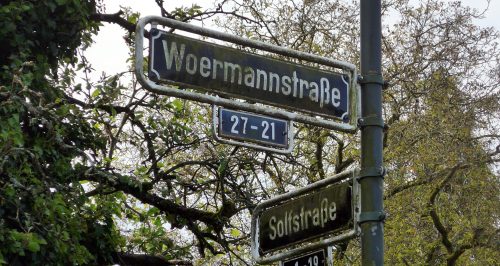The importance of interrogating colonial place names as part of the humanitarian goal of equalizing relationships between Africa and the Global North. In Germany, cities around the country (Düsseldorf, Essen, Frankfurt, Hamburg, Berlin among others), have active groups engaged in these and other decolonial efforts.
I’m on a plane heading to West Africa from Europe. My destination: Ghana – the former Gold Coast. The big “dark continent” lies below me. I’m on my way to celebrate the completion of a project funded by the German Ministry of Economic Cooperation and Development. I am happy that they made it possible for a series of writing workshops to be held. Danke, Deutschland.

The plane is flying over places I’ve never heard of: Fada N‘Gourma, Birnim Kebbi, Tillabéri – and my thoughts go back to the past. People were probably herded to the West African coast from these or similar places 500 years ago. There, they were loaded onto the waiting vessels anchored in front of slave forts on the Gold, Ivory and Slave Coasts – many of these forts are in present-day Ghana – and transported to a future that was completely unimaginable and unknown to them at the time. Today, we know what happened to the many millions of Africans who crossed the ocean. Today, we know about the history of transatlantic slavery. Today, we know that the official abolition of this inhuman practice – in 1807 in Great Britain, around 50 years later in the USA – did not end the era of inhumanity. Trade in humans was officially abolished, but at the same time, the era of colonialism was declared. A perpetuation of inhuman behaviour under a different name. (…) read more on the CIHA Blog
